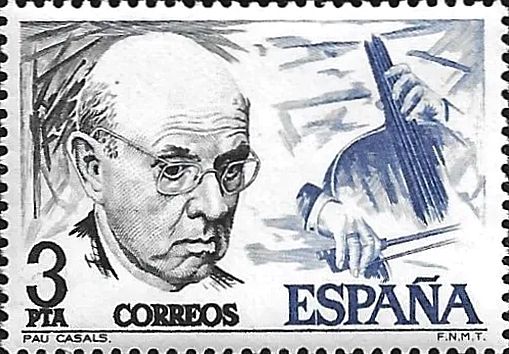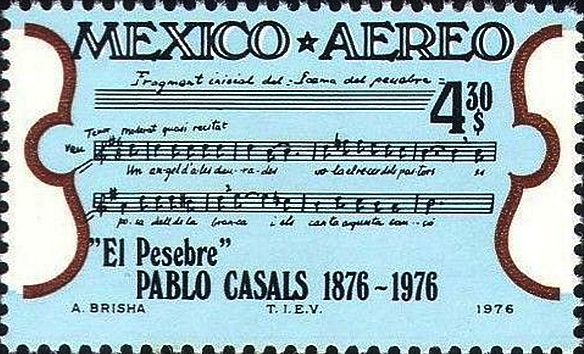
Spain 29.12.1976
The Spanish cellist Pablo Casals was born on December 29, 1876 in El Vendrell. He died on October 22, 1973 in San Juan, Puerto Rico. October 2023 will mark the 50th anniversary of his death.
As a child, Casals was taught singing, piano, organ and composition by his father, and his mother recognized his talent for the cello. He attended the conservatory in Barcelona and in 1895 planned to study with François-Auguste Gevaert in Brussels on a scholarship from the Queen of Spain.
As a child, Casals was taught singing, piano, organ and composition by his father, and his mother recognized his talent for the cello. He attended the conservatory in Barcelona and in 1895 planned to study with François-Auguste Gevaert in Brussels on a scholarship from the Queen of Spain.
As a composer, Pablo Casals created sacred music and orchestral works. His best-known work is the oratorio “El Pessebre”. As a cellist, Casals received particular attention with his interpretation of the suites for solo cello by Johann Sebastian Bach, which until then had been virtually unknown to the audience. At the age of 93, Casals was still practicing the cello for four to five hours every day. When asked “Why?” he once replied: “I feel like I’m making progress.”

Mexico 29.12.1976
by Johann Sebastian Bach (BWV 1009).